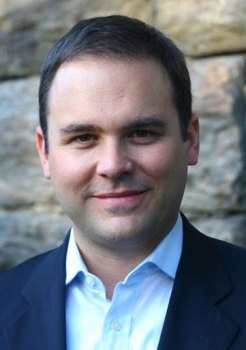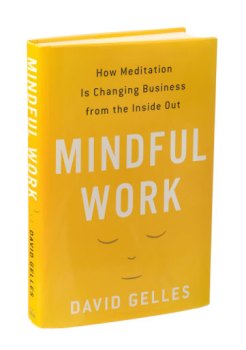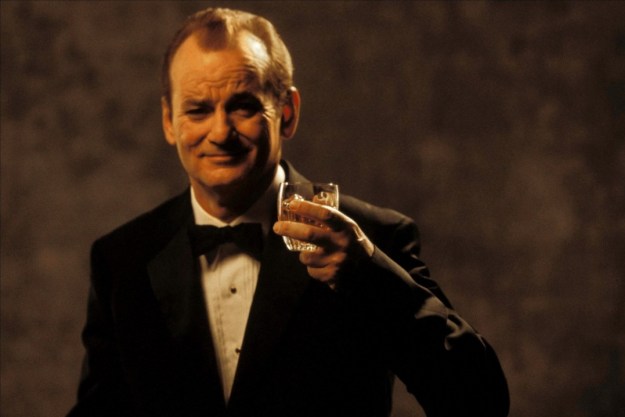
In today’s world of hyper connectivity, it seems particularly easy to lose site of the present and allow stress to take over. It doesn’t matter your job or where you live, there’s a good chance you’re logging a lot of time on social networks and have probably experienced a little FOMO as well, which is the strange irony of technology. Even though we’re more connected then ever, sometimes it seems we’re actually more disconnected from ourselves than ever.
I started delving into the world of meditation a few years ago and have found it to be an important touchstone in my life, especially during especially stressful times. It helps me maintain some sense of grounding and balance. And I’m not the only one who it’s working for.
A new book by New York Times Reporter David Gelles, “Mindful Work,” explores how business leaders are embracing mindulfness practices. It was once possible to pass off mediation as a kind of crunchy-hippy thing, it’s not anymore. As Gelles’ book shows, the people who are usually obsessed with productivity and profit have found great personal value in it. Like who? Maybe kick off the article with their names to draw guys in?
This is not to say that “Mindful Work” is a how-to-get-rich-quick book. It’s not. It’s a lens with which to view our modern life and a way to understand the tools people are using to live and thrive.
I caught up with Gelles to find out a little more about his book and mindfulness.

Mindfulness is for everyone. It’s not specific to any one culture, tradition, religion or profession. Instead, it’s a universal tool that can help us become less stressed, more focused, happier, healthier, and maybe even more productive. What’s so amazing is that professionals in a whole range of industries — from finance to sports to healthcare — are understanding this, and bringing mindfulness practices into the office. And it makes sense: the office, for so many of us, is the source of a ton of stress.
Without giving away too much of the book, what’s a good example of the benefits of mediation that you found during your research?
At Aetna, a big health insurer in Hartford, Conn., the CEO rolled out a mindfulness practice after it helped him personally overcome a really nasty skiing accident. It wasn’t so much a surprise that employees liked the program — getting the chance to slow down in the middle of a busy work day can be pleasant. But the data was amazing.
After taking the mindfulness course, employees’ self-reported stress went down, their sleep quality improved, and their productivity increased. What’s more, the biometric measures of stress — heart rate variability and cortisol levels (what is this?) — also went down. Finally, Aenta’s CEO was reviewing his books after the first full year of rolling this out to thousands of employees and saw something extraordinary: healthcare costs at the company on a per employee basis were down 7.3 percent. At a company as big of Aetna, that meant a $9 million savings.
You’ve been practicing mediation for years, is there anything you found out during your research about yourself or mediation that surprised you? That you were not expecting? I’m thinking of the part in the book when you get a promotion at the Financial Times and recommit yourself to mindfulness.
On the one hand, practicing meditation is one of the things that has helped keep me grounded, even as I’ve made some pretty stressful career choices. The flip side is that at times, I want to walk away from it all and just live much more simply. What I saw when reporting the book (reporting the book? Do you mean wrting the book?) is that there’s a really enormous middle ground, where people are able to incorporate mindfulness and meditation into just about any profession. The stories of the people who are really doing this are what inspired me to keep at it myself. I’m not perfect by any long shot, but if folks at Goldman Sachs, Google and General Mills are giving it a shot, I can too.

What’s going to happen is going to happen. There’s only so much we can control. What we can control, however, is how we respond. This is the whole game, in some way. Mindfulness training helps us be more present minded, more capable of choosing a deliberate and considered reply instead of shooting from the hip. A great way to think of it is the difference between reactions and responses. So often, we just react out of habit. With mindfulness, we can move from reaction to response, taking a moment to consider the appropriate course of action before charging ahead.
Related: Work and Relaz with this high-tech Gravity Balans chair
Did you see this Bill Murray story: 7 steps to living the Bill Murray Life? My favorite part is when he says, “Someone told me some secrets early on about living. You have to remind yourself that you can do the very best you can when you’re very, very relaxed. No matter what it is, no matter what your job is, the more relaxed you are, the better you are.” That to me seems really relevant to mindulfness. What do you think?
There is so much wisdom in comedy. That said, I’d posit that mindfulness is something very specific — paying attention in the present moment, on purpose, in a particular way, and nonjudgmentally. It’s not just being relaxed, and it’s not a passive activity. Mindfulness is actually a very active process that requires us to notice things in real time, without getting carried away by them. That said, Bill Murray seems to embody a lot of noble virtues, so I don’t doubt that he’s tapped into some higher order stream of consciousness.
Mindful Work also has a bit of “how to” in it, which I really appreciate. What’s your advice for someone who is intrigued by mediation but might be a little hesitant to try it?
There are tons of great and easy ways to get started. Headspace is an awesome app featuring my buddy Andy, a former monk, juggler and surf-loving Brit living in L.A. And if you’re up for it, courses like Mindfulness Based Stress Reduction are on offer in just about every city these days. However you get started, I do encourage people to seek out instructors who know what they’re talking about, rather than just forging ahead on their own. Most importantly, be kind to yourself and others. That’s always a good place to start.


